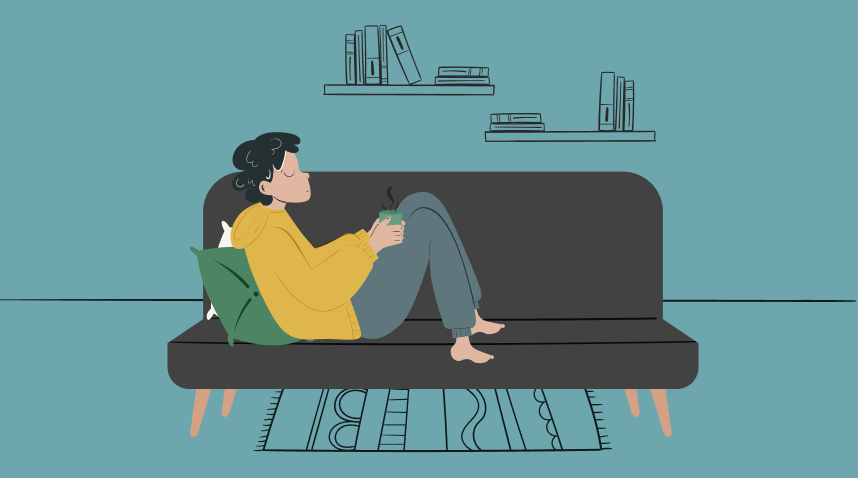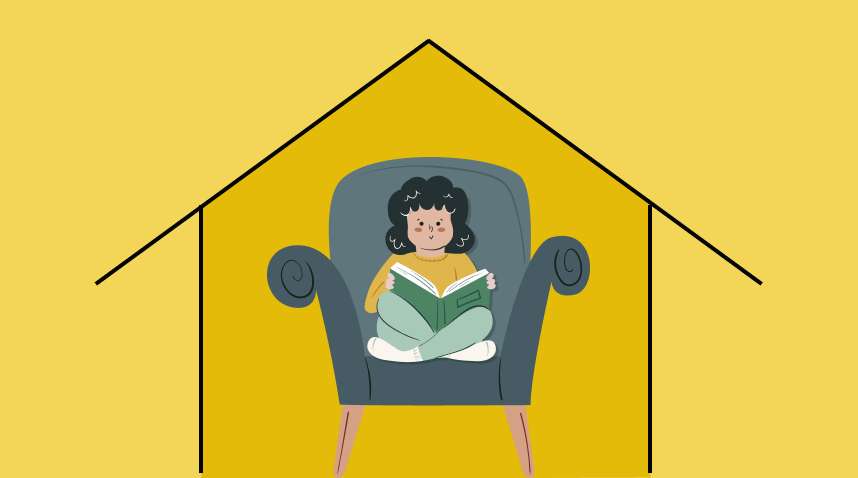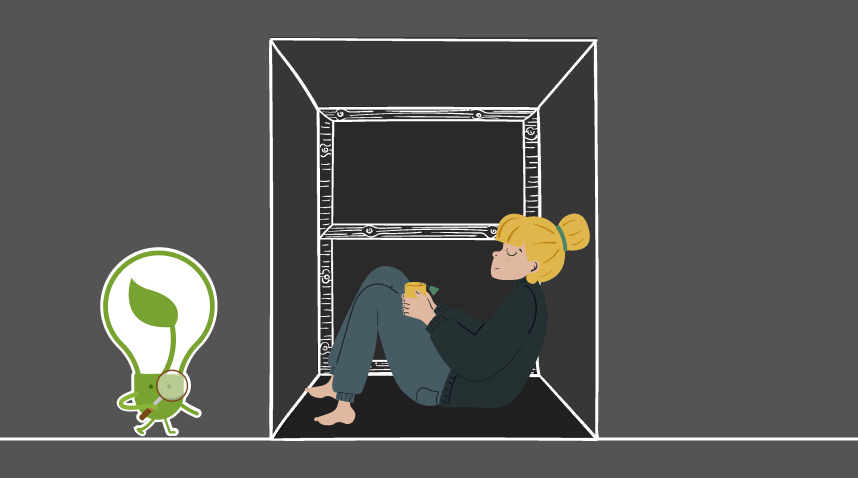TL;DR: A heartfelt letter addresses the universal experience of loneliness, especially in social settings. This offers comfort through Buddhist teachings and modern research, emphasizing the importance of self-connection, mindfulness, and the distinction between loneliness and solitude. The letter concludes with three wise steps to cultivate inner peace and meaningful relationships.
Dear 18-year-old Self,
I see you. I see the weight of expectations pressing down on your shoulders, and the relentless need to have everything figured out.
This pressure, this constant striving to meet your own and others’ expectations, has led you to a place of aimlessness and doubt. You feel lost when your goals remain unmet, and in these moments, loneliness wraps around you like a cold, unforgiving cloak.
Utterly Alone
I vividly remember that night in your university dorm room. The sounds of laughter and chatter filtered through the thin walls as your classmates gathered in the common area. You sat on your bed, laptop open but forgotten, staring at the door. You were surrounded by people and even friends, and yet you felt utterly alone.
You considered joining them. After all, wasn’t that what college was supposed to be about? Making friends, having fun, creating memories. But the thought of stepping into that room filled you with dread.
You knew you’d paste on a smile, laugh at the right moments, and make the appropriate small talk. But beneath it all, you’d still feel that gnawing emptiness, that disconnect.
It wasn’t that your classmates were unkind or unwelcoming. They were good people, and on the surface, you got along well. But something was missing. The conversations never seemed to go beyond the superficial – classes, campus gossip, weekend plans.
Something Deeper
You yearned for deeper connections, for conversations that would challenge your thoughts and stimulate your mind. You craved authenticity in a world that seemed content with the shallow and fleeting. You wanted to be understood.
At that moment, the loneliness felt almost palpable. You could reach out and touch it, a barrier between you and the world outside your door.
You wondered if something was wrong with you. Why couldn’t you just be satisfied with what everyone else seemed to enjoy?
Why did you always feel like you were on the outside looking in, even when you were right in the middle of things?
This experience, my dear self, is a poignant reminder that loneliness isn’t about physical isolation. It’s about emotional and intellectual connection. You can be in a room full of people and still feel profoundly alone if those connections are missing.
You aren’t alone in feeling lonely
But here’s what I want you to remember: this feeling, as isolating as it is, is more common than you think. Many others in that very room probably felt the same way, hiding behind their own masks of casual cheerfulness.
The Buddhist teaching of dukkha reminds us that dissatisfaction and a sense of discontent are universal human experiences. As you navigate these feelings, consider also the words of the late Zen monk, Thich Nhat Hanh: “Loneliness is the ill-being of our time. We are lonely together.”
In the Samyutta Nikaya (SN 56.11), the Buddha teaches about suffering as a noble truth. He explains that being separated from what is pleasing and being united with what is unpleasing are forms of suffering.
Your experience in that dorm room – being physically close to others but emotionally distant – is a modern manifestation of this ancient wisdom.
Loneliness & solitude

The funny thing that I’ve learnt over the years is that loneliness and solitude are not the same. It’s not how many people you try to fill your hours with, or the achievements, or social status that matters. Loneliness is a state of feeling disconnected.
Solitude, however, is a chosen state of being alone, where you can find empowerment and contentment in your own company. This distinction is critical, as psychologist Netta Weinstein’s research highlights.
This experience of loneliness, painful as it was, was also an invitation. An invitation to look inward, to understand yourself better, and to seek out the kinds of connections that truly nourish yourself.
Her studies show that solitude can be a source of empowerment and positivity, whereas feelings of disconnection and sadness mark loneliness, and according to the US Surgeon General’s Report, it increases the risk of premature death by 50%, akin to the dangers of smoking (Rest in peace, Uncle Cheong. 12 cigs a day didn’t make you live till 90.)
It was a catalyst for growth, pushing you to explore what friendship and connection really mean to you, and more importantly, learning to find “home – a place within where you feel warm, comfortable, safe, fulfilled.”
Going Home

This concept of “going home” is central to addressing loneliness. Thich Nhat Hanh teaches that “going home” means returning to the island of self through mindful breathing, sitting and walking.
Within a few seconds, you connect with yourself. You know what is going on: what is going on in your body, what is going on in your feelings and your emotions, what is going on in your perceptions, and so on. He further explains, “By sitting down, you stop that state of being: losing yourself, not being yourself.
Everyday you rush through life, going from one class to another, without really knowing what’s happening. Physically, you are there, but you do not know that you are there. You are alive, but it’s almost as though you do not know you are alive. And that is happening almost all day long.
And when you sit down, you connect to yourself.” Every time we sit down on a cushion, we do so to connect with ourselves. Sitting down is an act of revolution, it is the way to heal ourselves and the collective loneliness of our society.
Your journey through loneliness is not just a personal struggle; it’s part of the greater human experience. By facing it with courage and compassion, you’re not only working towards your own healing but contributing to a more connected and compassionate world.
May you be free from suffering. May you find peace. May you know that even in your loneliest moments, you are part of something greater – there is a future ahead of you, where you will walk in solitude on a beautiful Sunday evening, taking in the sights and sounds of a lovely garden, feeling fully content, joyous and peaceful. I promise you these dark days will be over.
I shall leave you with this final reflection: How can you connect with another person when you cannot connect with yourself?
With deep love,
Your Wiser Self (10 years later)
3 Wise Steps for anyone struggling with loneliness:
1. Practice Daily Mindfulness: Set aside time each day for mindful breathing or walking. This will help you connect with yourself and find peace within.
2. Embrace ‘solitude crafting’—intentionally planning fulfilling alone time. Use alone time for self-discovery and personal growth. Engage in activities that nurture your mind and body. Cultivate Authentic Connections: Seek out relationships that allow for deeper, more meaningful interactions. Quality matters more than quantity.
3. Seek Professional Help: If loneliness persists and impacts your well-being, consider seeking guidance from a therapist or counsellor. They can provide support and strategies to navigate through these challenging feelings.


